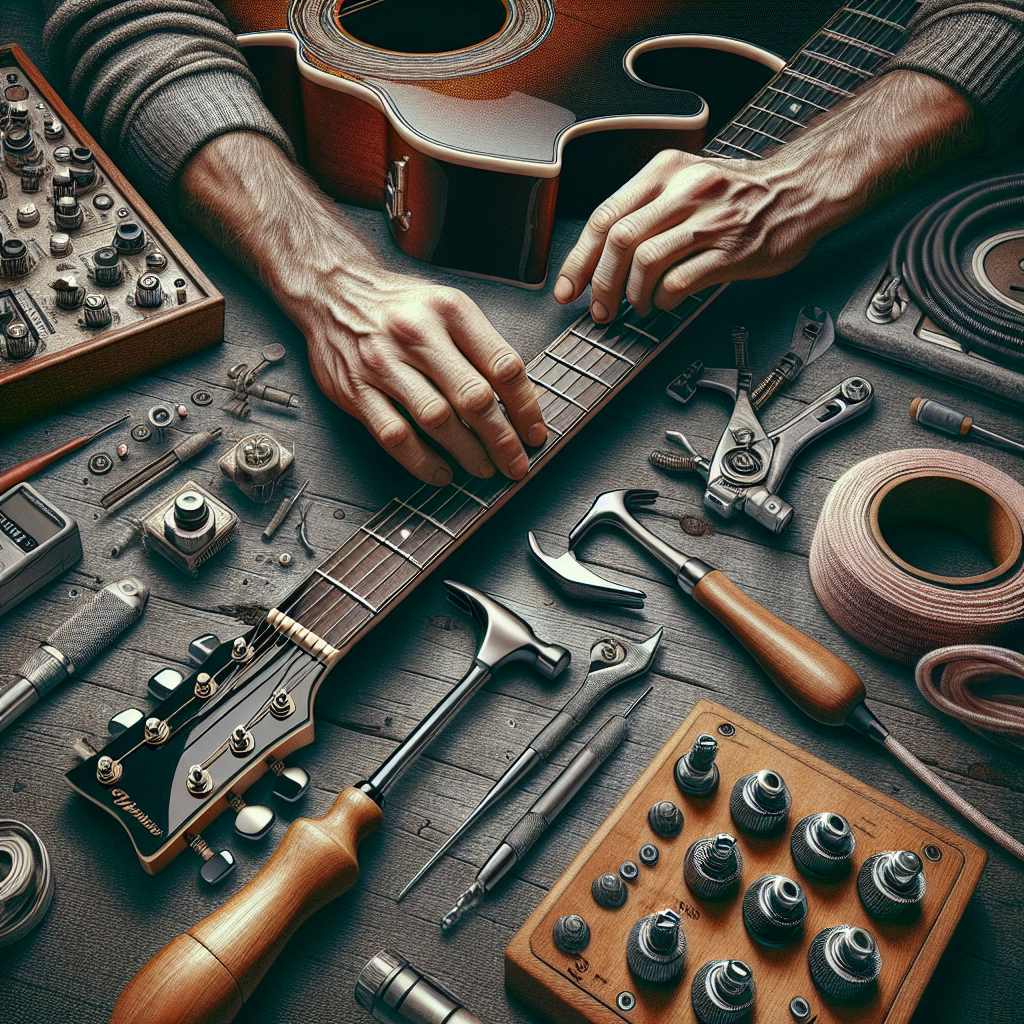
9 Expert Tips to Prevent Fretboard Wear and Tear
As musicians, we cherish our instruments and the stories they tell through every note we play. However, over time, the fretboard of a guitar can begin to show signs of wear, affecting both the instrument’s playability and its appearance. Learning how to maintain your fretboard is crucial in preserving its longevity and performance. In this guide, we will provide nine expert tips for preventing fretboard wear over time, ensuring your guitar remains in excellent condition for years to come.
1. Choose the Right Strings
The type of strings you use can significantly impact the wear on your fretboard. Consider using strings that are compatible with your playing style and the type of guitar. Lighter gauge strings tend to exert less pressure on the fretboard, reducing the potential for wear. Coated strings can also provide additional protection, as they reduce friction and grime buildup. For instance, D’Addario offers some great coated string options that are gentle on the fretboard.
2. Regularly Clean Your Fretboard
Regular cleaning is essential to prevent dirt, sweat, and oils from accumulating on your fretboard. Use a dry, soft cloth to wipe down your fretboard after every playing session. For a deeper clean, a slightly damp cloth with a fretboard-specific cleaner can be used. Avoid household cleaning agents as they may damage the wood. Detailed cleaning should be done whenever you change strings, which helps maintain the clarity and condition of your fretboard.
3. Keep Your Guitar Humidified
Guitars are sensitive to humidity changes, and improper humidity levels can cause fretboards to dry out and crack. Try to maintain a consistent humidity level between 45-55% in the room where you store your guitar. Investing in a quality guitar humidifier can help manage humidity levels effectively. A well-humidified guitar has a less brittle fretboard, reducing the chances of wear and tear.
4. Use Fretboard Conditioner
Conditioning your fretboard periodically with a fretboard-specific oil or conditioner helps keep the wood hydrated and can prevent cracking. Lemon oil is a popular choice for many guitarists, but ensure it’s suitable for your fretboard material. Apply the conditioner with care, using a clean cloth, and allow it to soak in before wiping away any excess.
5. Be Mindful of Your Playing Technique
Heavy-handed playing can accelerate fretboard wear. Being conscious of your technique and how much pressure you apply can preserve your fretboard. Practicing precision and control in your playing style can reduce unnecessary force, which in return minimizes wear over time. Mastering technique not only benefits the instrument but also enhances your playing skills.
6. Protect Your Guitar During Storage and Transport
Your guitar’s travel and storage conditions also affect its condition. Always store your guitar in a case, ideally a hard case, to protect it from temperature fluctuations and physical damage. When transporting your guitar, ensure it’s secure and cushioned to prevent unnecessary movement and potential fretboard impact. Proper storage is an often-overlooked element that directly affects the state of your guitar.
FAQs
1. How often should I clean my guitar fretboard?
You should perform a quick clean after every session to avoid buildup, and a more thorough clean every time you change strings. On average, this in-depth cleaning occurs every few months, but frequency can increase with heavy use.
2. What oils are safe to use on my guitar fretboard?
Lemon oil, almond oil, and specific fretboard conditioners are generally safe, but it is crucial to verify that they are compatible with the specific wood of your fretboard. Always use products designed for fretboards to avoid unintentional damage.
3. Can string choice really make a difference in fretboard wear?
Yes, using lighter gauge or coated strings can minimize the pressure and friction on your fretboard, slowing down wear. Regularly changing strings also helps maintain fretboard health.
4. How do I know if my guitar is affected by improper humidity?
Signs of humidity issues include fret sprout, cracks in the finish, and changes in the guitar neck’s action. Investing in a hygrometer can help monitor the environment your guitar is exposed to.
5. Can fretboard wear affect playability?
Yes, significant wear can create grooves in the fretboard, leading to buzzes and affecting intonation. Preventative care is crucial to maintaining optimal playability.
6. Is it necessary to use a humidifier for all types of guitars?
While more critical for acoustic guitars, electric guitars can also benefit from a humidifier to prevent fretboard warping and cracking. Maintaining the right humidity protects the wood across all types of guitars.
Conclusion
The right care and maintenance can significantly extend the life of your guitar’s fretboard. By choosing the appropriate strings, cleaning routinely, maintaining ideal humidity, conditioning the fretboard, and protecting your guitar during storage and transport, you can prevent undue wear and enjoy your instrument for many years.
Remember, a well-maintained fretboard is not only a pleasure to play but also a testament to a musician’s dedication to their craft. Keep your fretboard in prime condition, and it will continue to produce beautiful music with every strum.
For more detailed information on guitar care, you might want to check out resources like Fender’s guide on guitar maintenance.